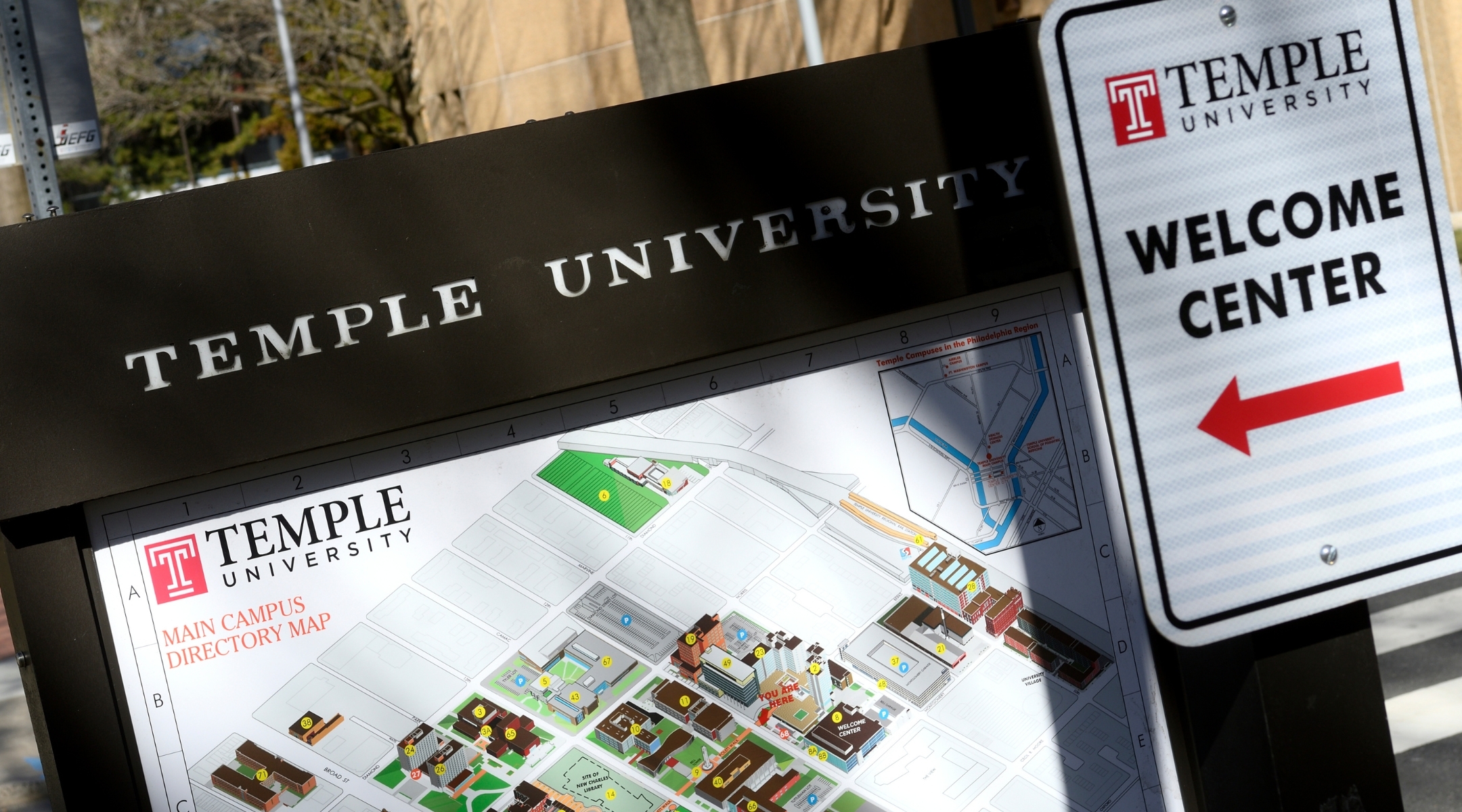Temple University investigating pro-Palestinian march at campus Hillel
The demonstrations at Temple University are part of a resurgence in campus protests as students return to school

A sign for Temple University’s welcome center. Photo by Bastiaan Slabbers/NurPhoto via Getty Images
(JTA) — Temple University in Philadelphia is investigating pro-Palestinian demonstrators who marched on the campus Hillel and used megaphones to “chant directly at the occupants within the building,” Richard Englert, Temple University president said in a statement Thursday.
Students among the marchers could face disciplinary action.
“We are deeply saddened and concerned by these events,” Englert said in his statement. “Targeting a group of individuals because of their Jewish identity is not acceptable and intimidation and harassment tactics like those seen today will not be tolerated.”
The demonstration, which involved both students and non-students, began at the main campus library Thursday. According the Philadelphia Inquirer, video shot by someone at the Rosen Center, Temple University’s Hillel building, shows dozens of protesters chanting and holding signs and Palestinian flags.
University police officers guarded the entrance to the building, the Temple News student newspaper reported. There were no reports of physical altercations or arrests, according to the Inquirer.
Yesterday, Temple's chapter of Students for Justice in Palestine organized a march, demanding the university condemn Israel and divest in monetary support. pic.twitter.com/CfcYPUyTkD
— The Temple News (@TheTempleNews) August 30, 2024
In a statement, Temple Students for Justice in Palestine, which organized the demonstrator, denied accusations of “antisemitism, intimidation, and harassment.”
The demonstrations at Temple University are part of a resurgence in campus protests as students return to school. At the University of Michigan, police broke up a pro-Palestinian “die-in” Wednesday and arrested four people. At Baruch College in New York last Saturday, protestors called to “bring the war home.”
A representative from Hillel at Temple did not return JTA’s request for comment.














